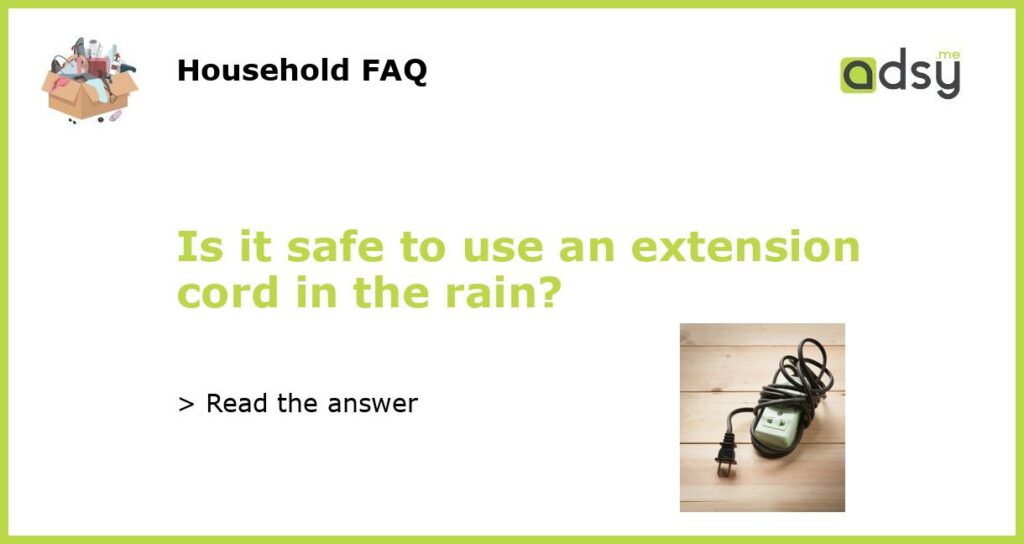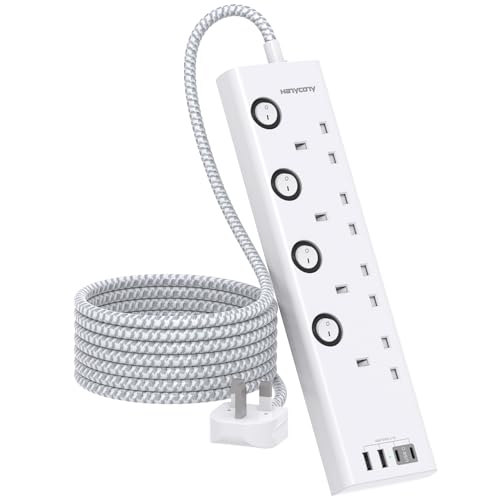Extension cords are often a lifesaver when you need to power an appliance or device that’s a bit too far from an outlet. However, one question that’s often asked is whether it’s safe to use an extension cord in the rain. In this article, we’ll take a look at the risks, hazards, and safety tips when using an extension cord in wet conditions.
The Risks of Using Extension Cords in the Rain
The primary risk of using extension cords in the rain is the possibility of electrocution. Water is a good conductor of electricity, and if the extension cord has any nicks, cuts, or breaks in the insulation, it can form a deadly electrical shock hazard. In addition, extended exposure to moisture can corrode the metal parts of the extension cord, resulting in possible short circuits, which can be a fire hazard.
Safety Tips When Using Extension Cords in Wet Conditions
There are a few safety tips you can follow to minimize the risk of using an extension cord in wet conditions. First, use an extension cord that is rated for outdoor use and is waterproof. These cords are designed to handle exposure to moisture and are less likely to develop electrical faults. Next, make sure the cord is plugged into a GFCI (ground fault circuit interrupter) outlet. The GFCI will shut off power if it detects any current leakage, preventing electrocution.
It’s also important to inspect the cord before use. Check the insulation, plug, and socket for any cracks, frays, or other defects that may make it unsafe to use. Don’t attempt to use a damaged extension cord. And if the cord becomes wet while in use, unplug it immediately. Allow it to dry completely before plugging it back in.
Alternatives to Using Extension Cords in the Rain
If you want to avoid using extension cords altogether in wet conditions, one option is to use a battery-powered device. Many appliances, such as cordless drills, hedge trimmers, and leaf blowers, now have battery-powered versions that eliminate the need for an extension cord. Alternatively, you can also install additional outdoor outlets, so appliances are always within reach of a power source.
All in all, using an extension cord in the rain can present a safety hazard and should be approached with caution. By following recommended safety tips, using the right equipment, inspecting the cord for damage before each use, and looking into alternatives to extension cords, you can minimize the risks and stay safe while powering your devices.






